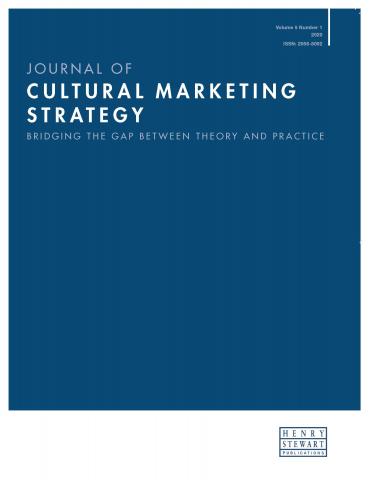"A unique journal providing practical, applicable thought leadership"
Beyond targeted advertising: Representing disenfranchised minorities in ‘inclusive’ advertising
Click the button below to download the full text of the article.
Abstract: The authors compare the responses of non-distinctive majority viewers (i.e. ‘straight’) and distinctive minority viewers (i.e. ‘gay’) to majority-targeted ads, minority-targeted ads and inclusive ads, which juxtapose majority and minority characters in a compatible manner. The study further investigates gay representation in inclusive ads. The results reveal that the non-stereotypical gay images in inclusive ads induce a less negative attitude among straight viewers. In addition, gay viewers’ responses toward gay ads and inclusive ads are equally favourable. The results highlight the potential of inclusive ads with non-stereotypical images of minorities to communicate effectively with minority consumers without alienating the majority.
Keywords: inclusive advertising, multicultural advertisement, LGBT, stereotype, minority-targeted ads
Xiaoqi Han holds a PhD degree in Marketing from the University of Cincinnati. Her scholarly interests include consumer information processing, persuasion, cultural, visual and verbal appeal in advertising, consumer inference, consumer bias and techniques of debiasing.
Sunny Wanhsiu Tsai received her PhD in Advertising from the University of Texas at Austin. Her research examines the influence of advertising as a powerful cultural institution in capitalistic societies. Specifically, she has investigated topics such as gay consumers’ response to gay advertising, cross-cultural comparison of brands’ social media messages, consumer acculturation, consumer ethnocentrism, and minority consumers’ response to multicultural advertisings.



